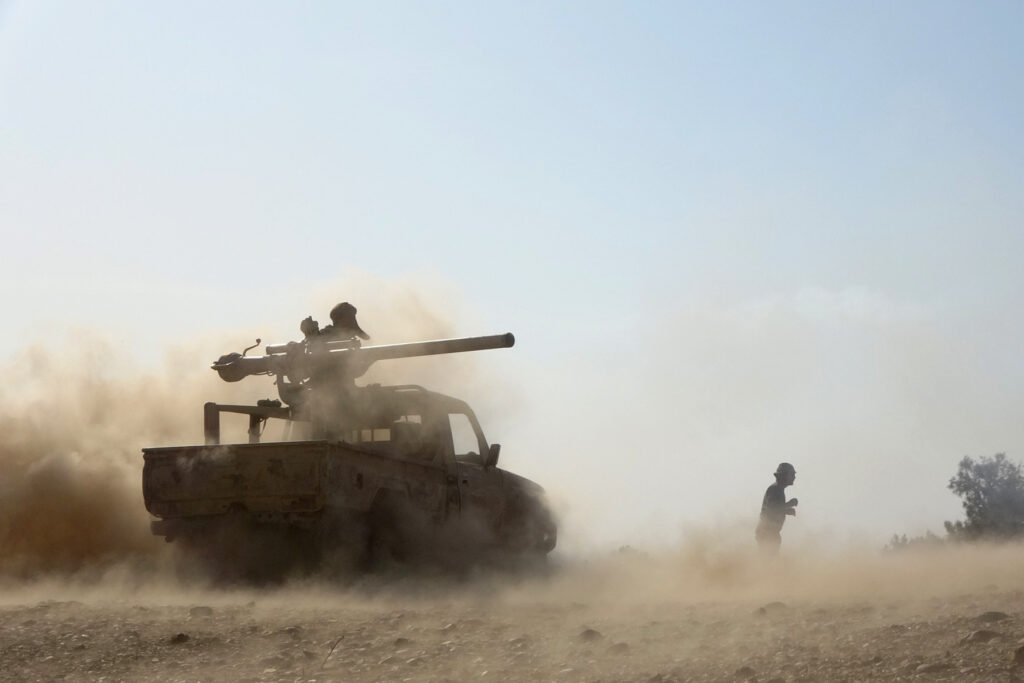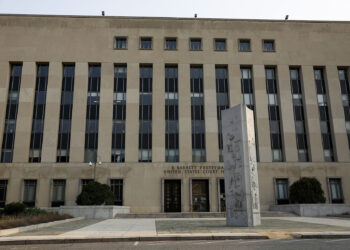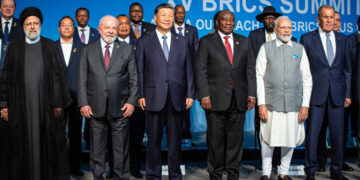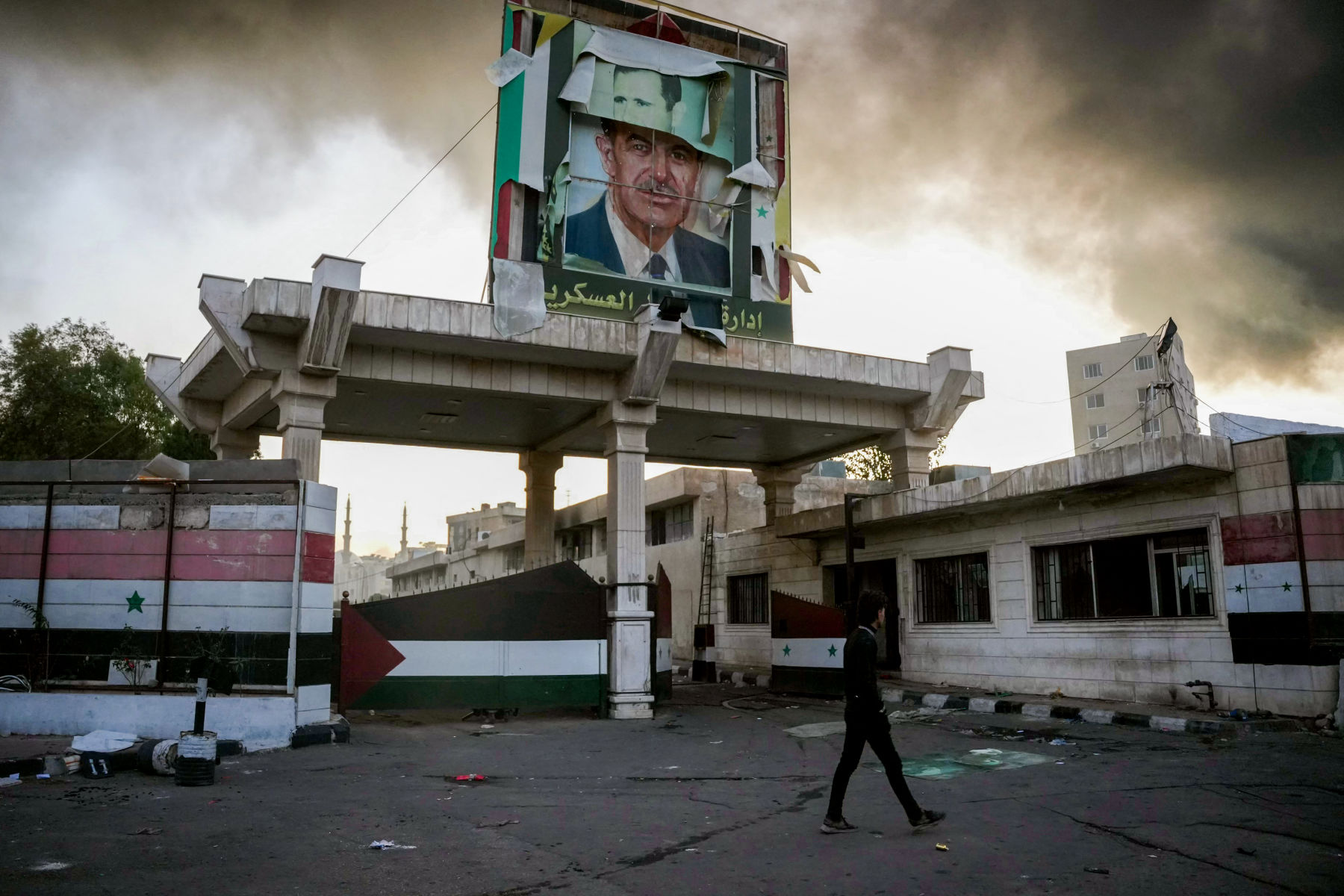Fernando Carvajal served on the U.N. Security Council’s Panel of Experts on Yemen from April 2017 to March 2019 as an armed groups and regional expert. He has nearly 20 years of experience conducting fieldwork in Yemen and is a specialist in Yemeni politics and tribal relations.
Editor's note: This article is adapted from a paper presented at the Yemen D.C. Conference, which was convened in Washington by DAWN, the Tawakkol Karman Foundation and the Center for Contemporary Arab Studies at Georgetown University.
Upon taking office, U.S. President Joe Biden promised to end the war in Yemen. His primary vow was to end U.S. assistance for the Saudi-led coalition, but members of his own Democratic Party demanded more. In a shift in policy, Biden went further and appointed a special envoy to Yemen, Tim Lenderking, setting high expectations that have so far yielded no progress toward the start of peace talks.
Biden's comments about the war in Yemen have been as obscure as U.S. policy on Yemen over the past two decades. Promising to end the war in Yemen might have gained some support among progressives (and some conservatives, like Rand Paul) in the United States, but Biden's initial act as president was to lift the U.S. designation of the Houthis as a foreign terrorist organization, or FTO, issued in the final days of Donald Trump's presidency. This move not only contradicted Biden's promise to end the war—according to the many Yemenis condemning Houthi war crimes throughout the country—but also exacerbated his administration's tensions with partners like Saudi Arabia and the United Arab Emirates, which strongly opposed lifting the terrorist designation.
The Biden administration cited the humanitarian impact on Yemen in revoking the designation on the Houthis, with an official telling the Associated Press: "Our action is due entirely to the humanitarian consequences of this last-minute designation from the prior administration, which the United Nations and humanitarian organizations have since made clear would accelerate the world's worst humanitarian crisis." In response, proponents of the FTO listing argued that the same Houthi individuals targeted by the Treasury Department were already sanctioned separately by the U.N. and the U.S., and those existing sanctions had not affected the flow of aid into Yemen since the war started. Several general licenses issued by the Treasury Department for imports into Yemen, proponents also insisted, would mitigate any anticipated repercussions from the terrorist designation.
Biden's promise on Yemen appears intentionally unclear, as he failed to specify which war he aimed to end. The Houthis' long war against the Yemeni state? The multisided intra-Yemeni war, which includes southern secessionists? Or the war between the Houthis and Saudi Arabia?
Biden's promise to "end the war in Yemen" failed to specify which war he aimed to end. The Houthis' long war against the Yemeni state? The multisided intra-Yemeni war? Or the war between the Houthis and Saudi Arabia?
- Fernando Carvajal
The answer must acknowledge "that the scene is originally Yemeni not Saudi or Iranian," as Jamal Khashoggi wrote in a 2015 op-ed, and therefore the end of the war lies in the hands of Yemenis themselves. Yet Yemenis and observers in the region also acknowledge that in order to unite warring parties toward an agreement on the future of Yemen, "foreign intervention may be positive if its aim is to unite Yemenis and push them to agree on how to share Yemen and establish a new Yemen," as Khashoggi added. Only one foreign power, Iran, has chosen what Khashoggi himself called "flagrant bias to the Houthis" to "forcefully impose its will and decisions on other parties." The narratives about Yemen that ignore this chronology serve merely to prolong the devastating war, the longest armed conflict in Yemen since the Houthi uprising against President Ali Abdullah Saleh's government began in Saada in the summer of 2004.
The fact remains that the war between Yemeni parties continues across multiple fronts, even in the absence of air strikes by the Saudi-led coalition on Yemeni territory since April 2022 with the U.N.-brokered cease-fire. There have been no reported cross-border strikes since that truce expired on Oct. 2, 2022, clearly contradicting claims that the war in Yemen would end if the U.S. stopped refueling Saudi fighter jets and sharing intelligence with the kingdom, or that the Houthis "have [already] won."
A major problem with the U.S. approach to the conflict in Yemen is its lack of clarity. This ambiguity is driven primarily by a failure to identify policy goals. It is exacerbated by narratives that ignore the chronology of events or the role of parties to the conflict. As a consequence, many Yemeni observers perceive a pro-Houthi bias among international diplomats, including U.S. officials.
In examining the narratives advanced by those in the United States engaging in the conflict in Yemen, there are three main camps: the U.S. government under Democrats or Republicans; anti-war progressive activists, including in Congress; and the Iran hawks. All three camps suffer from a myopic approach to Yemen, merely viewing the conflict through the role of regional powers, rather than its Yemeni roots, and failing to de-couple the Yemeni crisis from other conflicts in the region.

This can lead, in the most extreme cases, to adopting an essentially Houthi narrative that claims that the war in Yemen is a foreign invasion by Saudi Arabia and other coalition countries. Yet Yemen's U.N.-recognized government called for that intervention in 2015—after the Houthis seized the presidential palace in Sana'a and forced then-President Abd-Rabbu Mansour Hadi to flee to Aden—as a form of collective security against a non-state actor, under Article VI of the Arab League Charter, and as noted in U.N. Security Council Resolution 2216. There are also a number of resources publicly available that debunk Houthi claims over the flow of imports into Yemen, the number of ships docked at Hodeidah's Houthi-controlled port, and the amount of aid provided by U.N. agencies and nongovernmental organizations.
Over the past eight years, U.S. policy in Yemen, already so vague in its aims, has been constrained by the commonly accepted view that the U.S. relationship with and influence over Saudi Arabia grants it the ability to simply "end the war in Yemen." This misunderstanding of the conflict effectively normalizes Houthi claims of legitimacy and depicts any policy to weaken Houthi leverage as aggression—often against the people of Yemen, rather than the armed group that initiated violence against the state. Events throughout 2022 have also demonstrated the limits to U.S. influence over Riyadh during the spat over oil production, not to mention the impact of four years under the Trump administration. This approach by anti-war activists and members of Congress bent on punishing Saudi Arabia for its human rights violations has proven counterproductive and directly served to prolong the suffering of millions of Yemenis as the war expands.
Furthermore, members of Congress have opted to pursue legislative constraints on the president as primary instruments to restrain the U.S. role in Yemen's conflict. Unfortunately, the political focus on the War Powers Resolution by lawmakers like Sen. Bernie Sanders in December 2018, March 2019 and December 2022 has not only failed in passing the resolution each time, it has failed to produce any significant contribution toward de-escalating the conflict or provide relief to millions of civilians across Yemen.
If the U.S. government or civil society want to play a role in Yemen's eventual peace process, they must be neutral mediators. They must also focus on the Yemeni conflict alone, de-coupling it from proxy conflicts and other tensions with regional partners. A failure to support Yemen-based solutions to the civil war sparked by the Houthi coup d'etat in September 2014 will continue to exacerbate the humanitarian crisis for over 28 million Yemenis across the country and fuel a protracted armed conflict with hundreds of thousands of casualties. Activists and government officials should note that the estimates on direct and indirect casualties from the war often fail to include the tens of thousands of Yemenis imprisoned, tortured and executed by the Houthis, as well as the children recruited by Houthis and deployed to the front lines. According to SAM for Rights and Liberties, an NGO focused on Yemen, the Houthis may well have recruited over 10,000 Yemeni children since 2014.
Any efforts to bring this nearly nine-year conflict to an end must prioritize the interests of Yemenis themselves—by de-coupling Yemen from any other political conflict in the region and addressing the roots of the Yemeni civil war.
- Fernando Carvajal
Without a comprehensive and lasting peace among Yemeni parties, there is no peace among Yemen's neighbors. Saudi Arabia and Yemen share an 800-mile border, and instability anywhere in Yemen will also represent a security threat to the UAE and Oman. Ongoing Houthi demands for direct talks with Saudi Arabia remain outside the framework of the conflict and undermine international agreements in support of Yemen's legitimate government.
A problem at the core of demands by some in Washington to end U.S. intelligence and military support for Saudi Arabia is that such a move will legitimize the Houthi coup and their crimes against Yemeni civilians. Although the U.N.-brokered cease-fire expired last fall, the absence of both cross-border attacks by Houthi forces and airstrikes by the Saudi-led coalition have mostly contained the war at low-intensity clashes, even as the Houthis have still used short-range drones to attack oil facilities across Yemen.
Any efforts to bring this nearly nine-year conflict to an end must prioritize the interests of Yemenis themselves—by de-coupling Yemen from any other political conflict in the region and addressing the roots of the Yemeni civil war. This is where the U.S. can focus its diplomatic resources, in particular the role of the U.S. special envoy appointed by Biden: to bring the parties to the table in support of the U.N. special envoy's nascent peace process. Months of fragile détente between Saudi Arabia and the Houthis provide the perfect opportunity to assert U.S. diplomacy and break the deadlock.
In order to move beyond the current impasse, the balance of power must shift toward Yemen's internationally recognized government, based in Aden since the Houthi takeover of Sana'a. The Biden administration must directly engage with the Political Leadership Council—the government's new executive body, which was formed in Riyadh last year and charged with seeking a "comprehensive political solution" to Yemen's war—to strengthen its legitimacy and the unity among Yemeni political parties. Both the Saudi-led coalition and the Political Leadership Council have bent to accommodate Houthi demands since the U.N. cease-fire initially took hold, without any significant change in behavior by the Houthis, who in turn have increased their demands since the cease-fire expired. Houthi leadership in Sana'a has yet to meet any of its commitments under the U.N.-sponsored cease-fire agreement, such as lifting the siege in Taiz, and instead has escalated hostilities by targeting gas and oil facilities across southern Yemen. Houthi actions are exacerbating Yemen's economic crisis without any signal from Sana'a of their willingness to engage in peace talks.
The tenuous détente between Saudi Arabia and the Houthis has yet to signal an end to Yemen's wider conflict, as clashes continue between Houthi forces and affiliates of Yemen's U.N.-recognized government across multiple front lines. But even this détente may not last, reigniting every war in Yemen.





































